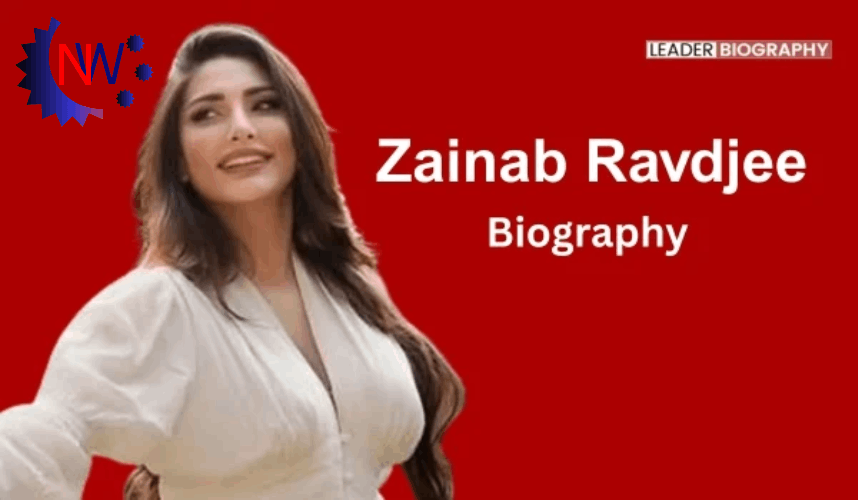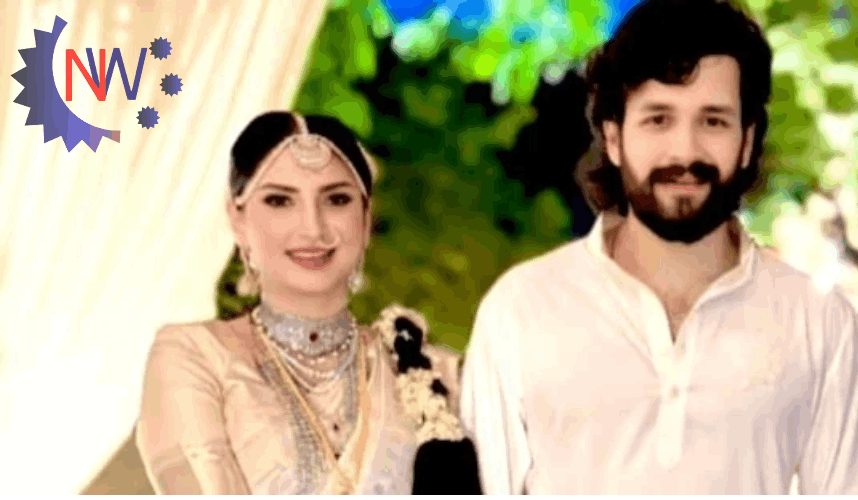Zainab Ravdjee Religion: Privacy, Public Curiosity, and the Role of Faith in Modern Society

Introduction
In today’s hyper-connected world, the private lives of public figures are often subject to intense scrutiny. From their family backgrounds to their personal beliefs, every detail can become a topic of public discussion. Among the most sensitive and frequently discussed aspects is religion. For many, faith is a deeply personal matter, yet for public figures, it can become a subject of widespread curiosity and speculation.
Zainab Ravdjee is one such figure whose name has gained recognition in recent years. As her influence grows, so does the public’s interest in her background, values, and beliefs—including her religion. But what do we really know about Zainab Ravdjee’s faith? Why does it matter to so many people? And how should we approach such questions in a way that respects both individual privacy and the public’s right to information?
This blog explores these questions, offering a comprehensive look at the intersection of religion, privacy, and public life, using Zainab Ravdjee as a case study. We’ll examine what is known (and not known) about her religious beliefs, discuss the broader context of religion in society, and reflect on the ethical considerations involved in discussing such personal topics.
Who is Zainab Ravdjee?
Before delving into the specifics of her religion, it’s important to understand who Zainab Ravdjee is and why she has become a subject of public interest. Zainab Ravdjee is known for her work in media, activism,, where she has made significant contributions. Her dedication, professionalism, and unique perspective have earned her a following among those who admire her work.
While her professional achievements are well-documented, details about her personal life, including her religious beliefs, are less widely known. This is not uncommon for public figures who choose to keep certain aspects of their lives private. In fact, the decision to keep one’s faith private is a personal one, and it is important to respect that choice.
The Curiosity Around Religion
Religion is a deeply personal matter, yet it often becomes a topic of public discussion, especially when it comes to celebrities, politicians, and other influential individuals. There are several reasons for this:
1. Role Model Effect
Public figures often serve as role models, consciously or unconsciously. People look up to them and are curious about the values and beliefs that guide their actions. Knowing a public figure’s religion can help fans and followers feel a sense of connection or shared identity.
2. Cultural Representation
In diverse societies, knowing the religious background of a public figure can foster a sense of representation and inclusion. For minority communities, seeing someone who shares their faith succeed in the public eye can be a source of pride and inspiration.
3. Media Sensationalism
Sometimes, the media amplifies personal details to attract attention, even when those details are not directly relevant to a person’s public role. This can lead to unnecessary speculation and invasion of privacy.
4. Understanding Motivations
For some, understanding a public figure’s faith can provide insight into their motivations, values, and decision-making processes. Religion can be a powerful force in shaping a person’s worldview and actions.
However, this curiosity must be balanced with respect for privacy and an understanding that a person’s faith is their own.
Zainab Ravdjee’s Religion: What Do We Know?
As of now, there is no official or widely recognized public statement from Zainab Ravdjee regarding her religion. Zainab Ravdjee has not made her faith a central part of her public persona, nor has she discussed it extensively in interviews or on social media. This silence can be interpreted in several ways:
- Zainab Ravdjee may prefer to keep her religious beliefs private, focusing instead on her professional work.
- Zainab Ravdjee may not consider her religion to be relevant to her public role.
- Zainab Ravdjee may wish to avoid being defined or categorized by her faith.
In the absence of direct statements, it is important to avoid speculation or the spread of rumors. Instead, we can use this opportunity to reflect on why such information is sought after and how we can approach it with sensitivity.
The Importance of Respecting Privacy
In a world where personal boundaries are often blurred, respecting privacy is more important than ever. This is especially true when it comes to religion, which is a deeply personal and sometimes sensitive subject. Here are a few reasons why privacy should be respected:
1. Personal Choice
Every individual has the right to decide what aspects of their life they wish to share with the public. For some, faith is a private matter, while for others, it is a central part of their identity. Both choices are valid and should be respected.
2. Avoiding Stereotypes
Publicly associating someone with a particular religion can lead to stereotyping or assumptions about their beliefs, values, or actions. This can be unfair and reductive, especially in diverse societies where individuals may practice their faith in unique ways.
3. Preventing Misuse
In some cases, information about a person’s religion can be misused for political, social, or commercial gain. This can lead to discrimination, harassment, or unwanted attention.
4. Focusing on Achievements
By focusing on a person’s professional achievements and contributions, rather than their personal beliefs, we can foster a more inclusive and merit-based society.
5. Legal and Ethical Considerations
In many countries, privacy is protected by law, and individuals have the right to keep their religious beliefs confidential. Ethically, it is important to honor this right, especially in a world where religious discrimination still exists.
Religion and Public Life
While privacy is important, it is also true that religion can play a significant role in shaping a person’s values, decisions, and public actions. For some public figures, their faith is a source of inspiration and guidance, influencing their work and interactions with others.
If Zainab Ravdjee were to speak publicly about her religion, it could provide valuable insights into her motivations and worldview. It could also serve as a source of inspiration for others who share her faith or values. However, until Zainab Ravdjee chooses to do so, it is important to respect her decision and focus on the aspects of her life that she has chosen to share.
The Influence of Faith on Public Figures
Throughout history, many public figures have drawn on their faith as a source of strength and guidance. From Mahatma Gandhi’s commitment to nonviolence, inspired by his Hindu beliefs, to Malala Yousafzai’s advocacy for girls’ education, rooted in her Islamic faith, religion has often played a central role in shaping the actions and legacies of influential individuals.
However, not all public figures choose to make their faith a central part of their public identity. Some prefer to keep their beliefs private, focusing instead on their work and achievements. Both approaches are valid, and it is important to respect each individual’s choice.
The Role of Media and Public Discourse
The media plays a significant role in shaping public perceptions of religion and public figures. Responsible journalism involves verifying facts, avoiding speculation, and respecting the privacy of individuals. Unfortunately, not all media outlets adhere to these principles, sometimes leading to the spread of misinformation or sensationalism.
As consumers of media, we also have a responsibility to approach such topics with critical thinking and empathy. Before sharing or commenting on information about someone’s religion, it is important to consider the source, the intent, and the potential impact on the individual involved.

The Dangers of Speculation
Speculating about someone’s religion can have serious consequences. It can lead to the spread of false information, fuel stereotypes, and even incite discrimination or harassment. In some cases, it can also distract from the individual’s achievements and contributions, reducing them to a single aspect of their identity.
The Importance of Verified Information
When discussing sensitive topics like religion, it is essential to rely on verified information from credible sources. This helps ensure that public discourse is informed, respectful, and accurate.
Common Misconceptions and Rumors
In the absence of official information, rumors and misconceptions can easily spread. This is particularly true in the age of social media, where information (and misinformation) can go viral in a matter of minutes. Here are a few tips for navigating such situations:
- Check the Source: Is the information coming from a reliable and verified source?
- Look for Direct Statements: Has the individual in question made any public statements about their religion?
- Avoid Assumptions: Do not assume someone’s religion based on their name, appearance, or background.
- Respect Boundaries: If someone has chosen not to discuss their religion, respect their decision.
The Broader Significance of Religion in Society
Religion continues to play a significant role in societies around the world. It shapes cultures, traditions, and values, and can be a source of comfort, community, and identity for many people. At the same time, it is important to recognize and respect the diversity of beliefs and practices that exist.
Religion as a Source of Identity
For many, religion is a core part of their identity. It provides a sense of belonging, purpose, and meaning. It can also serve as a source of strength in times of difficulty and a guide for ethical decision-making.
Religion and Social Cohesion
Religion can also play a role in fostering social cohesion and community. Religious institutions often provide support networks, charitable services, and opportunities for social engagement.
The Challenges of Religious Diversity
In increasingly diverse societies, it is important to foster mutual understanding and respect among people of different faiths. This requires openness, dialogue, and a willingness to learn from one another.
Zainab Ravdjee’s Influence Beyond Religion
Regardless of her religious beliefs, Zainab Ravdjee’s influence extends far beyond matters of faith. Her work in Painting has had a positive impact on many people, and her dedication to her craft serves as an example for others to follow.
By focusing on her achievements, values, and contributions, we can appreciate the full scope of her influence without reducing her identity to a single aspect of her life.
The Power of Representation
Even without explicit statements about her religion, Zainab Ravdjee’s success can serve as a source of inspiration for people from diverse backgrounds. Her achievements demonstrate that it is possible to excel in one’s field while remaining true to one’s values and beliefs, whatever they may be.
The Importance of Inclusivity
By celebrating the achievements of individuals from all backgrounds, we can foster a more inclusive and equitable society. This means recognizing and valuing diversity in all its forms, including religion, ethnicity, gender, and more.
Conclusion
The curiosity about Zainab Ravdjee’s religion is understandable, given her rising profile and the role that faith can play in shaping a person’s life. However, in the absence of public statements or information, it is important to approach the topic with respect, sensitivity, and a commitment to privacy.
As a society, we must recognize that public figures are entitled to the same rights to privacy and personal choice as anyone else. By focusing on their achievements and contributions, rather than their personal beliefs, we can foster a more inclusive and respectful public discourse.
Ultimately, the significance of Zainab Ravdjee’s religion lies not in the details of her faith, but in the values she embodies and the positive impact she has on those around her. Whether or not Zainab Ravdjee chooses to share her religious beliefs with the public, her work and example speak for themselves.read more here




